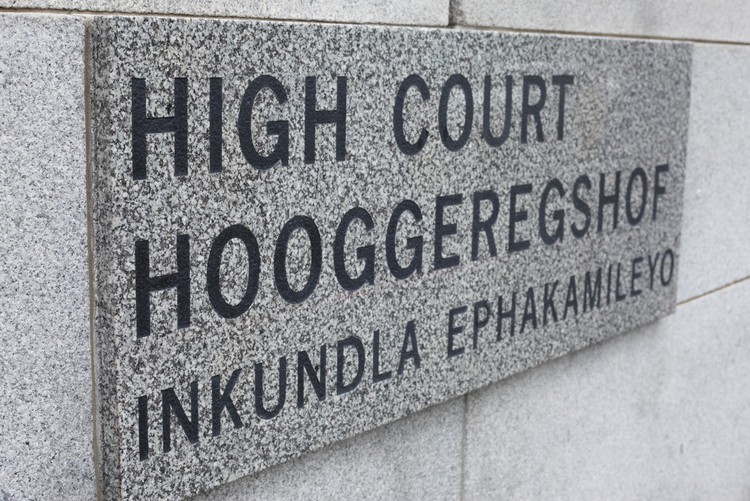
Photo: Masixole Feni
20 July 2017
The Constitutional right to a fair trial includes the right to appeal. To do that there needs to be a record of the trial. In Bongile Mbangane’s case, at least some of these records are nowhere to be found despite his persistent efforts to secure them over the past few years.
“The transcribed records could not be traced even to any cassette or recording machine as at that time there were no such cassettes,” wrote the registrar of the Mthatha High Court earlier this year in a letter to Mbangane’s Legal Aid counsel. Mbangane’s case of murder, theft and robbery was heard in Sterkspruit Circuit Court and the Mthatha High Court. At least a portion of the record from Sterkspruit is missing and the official who was meant to record the proceedings has died.
“It is an unfortunate state of affairs apparently beyond our powers,” states the registrar. “I strongly believe that this matter was either not recorded at all or the recording machine was faulty at the time of recording.”
Clare Ballard, head of the Penal Reform Programme at Lawyers for Human Rights (LHR), said that LHR gets enquires “all the time” from inmates who are unable to locate their transcripts. She said that while she is not an expert on criminal law, she knows that it is a “massive problem”.
Ballard said that when the recordings go missing they need to be reconstructed using the notes from the two parties involved. This “doesn’t always work” as people don’t always take comprehensive notes and that these documents are often long destroyed.
She said that reconstruction is a “last ditch attempt” and that “for the most part, I don’t think it works”. “It’s a very obvious fair trial problem,” said Ballard. “The right to an appeal is a clear one. If you can’t exercise it, I think the fairness [of the] trial is diminished.”
According to his legal representatives at Legal Aid, Mbangane was convicted and sentenced to life imprisonment plus five years in 2012 as a result of circumstantial evidence and the fact that he was the last person to be seen with the deceased.
He was given leave to appeal his sentencing, but this was dismissed in mid-2015 by the Supreme Court of Appeal. He then wanted to take the matter to the Constitutional Court but Legal Aid has a policy that once one application has been dismissed, it will only continue if there are are “reasonable prospects of success”. Legal Aid’s counsel believed that based on the judgment there were no prospects of success. Nevertheless, a determined Mbangane wanted the transcripts to be found so that the lawyers could reconsider their opinion.
“As we were willing to oblige him in his request, we wanted a transcription of the record,” Legal Aid told GroundUp.
It was only in April 2017, after numerous requests, that the registrar formally wrote to Mbangane’s lawyers informing them that the records were missing.
Unfortunately Mabangane isn’t the only inmate who is at the mercy of a disorganised court system.
In the case of Davids v the State, Judge Lee Bozalek ruled in 2013 that Pieter Davids’ conviction for murder and his 15 year sentence be set aside. Davids was convicted in 2005 and right after conviction he indicated that he wanted to appeal but needed legal representation. Only seven years later was this granted. It was then found that the record of proceedings was missing and it was concluded that it couldn’t be reconstructed. In his judgment Bozalek emphasised that the court mustn’t “prescribe a uniform course of conduct in matters involving missing records since the circumstances of each case may vary widely”.
In State v Khoza, Elias Joseph Khoza was sentenced to life imprisonment in June 2009 for the rape of a 14-year-old girl. Khoza wanted to appeal but the record was incomplete and needed to be reconstructed. In Judge Anton Van Zyl’s judgment he described the situation as “most unsatisfactory”. He said that the missing record was “symptomatic of a malaise which is increasingly manifesting itself in this Court”.
“It has become the exception during criminal appeal hearings when there is not at least one, and often more, appeal matters which cannot be finalised because of defects or omissions in the appeal records,” said Van Zyl. In Khoza’s case, the matter was postponed so that the court could attempt to reconstruct the record.
In State v Van Staden, Frans van Staden was convicted on a charge of murder and sentenced to 15 years imprisonment. Van Staden wanted to appeal his sentence but the record of the trial proceedings was missing. In a 2008 judgment on special review in the High Court, Judge Johann Olivier said that if an application is very delayed and this has resulted in the impossibility of reconstructing the record and the accused is to blame for the delay, then the matter should be struck from the roll.
Only if the accused is not to blame for the delay would the setting aside of conviction or sentence be justified, said Olivier. In Van Staden’s case, the application for leave to appeal was denied.
In Mbangane’s case, he may not be able to take his case any further but legally he should be able to access the court records or at least secure a reconstruction. Mbangane is still awaiting a date for the reconstruction but the judge’s notes were found which will aid this process.